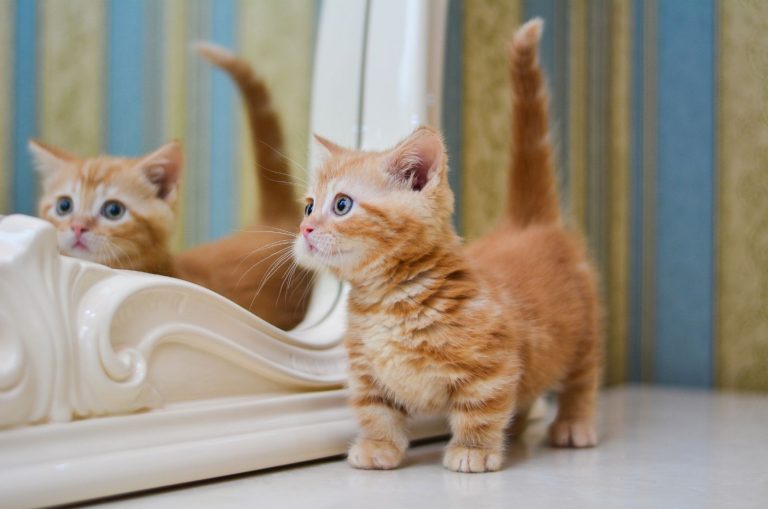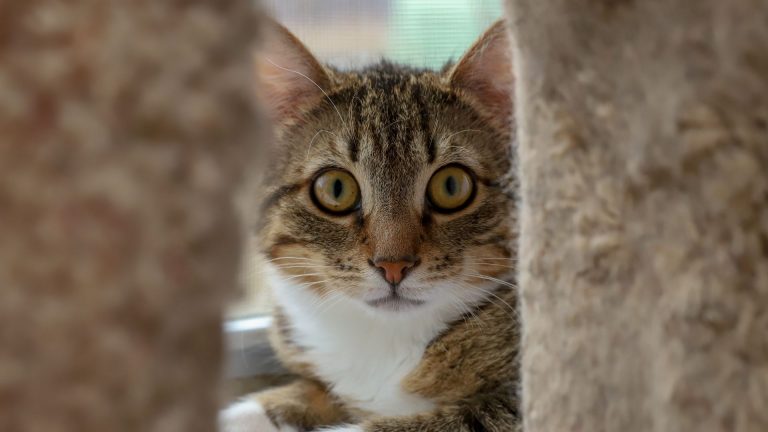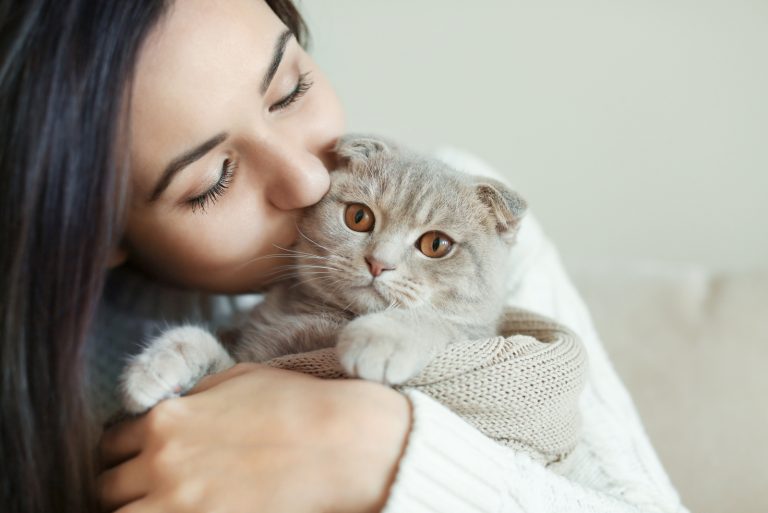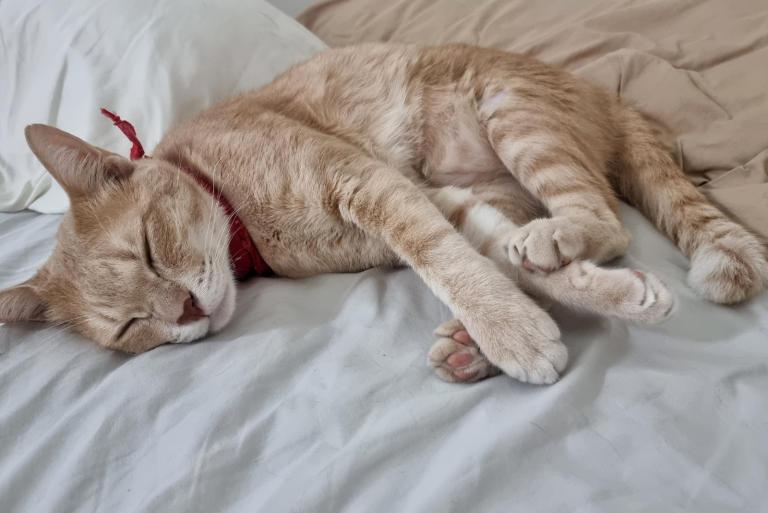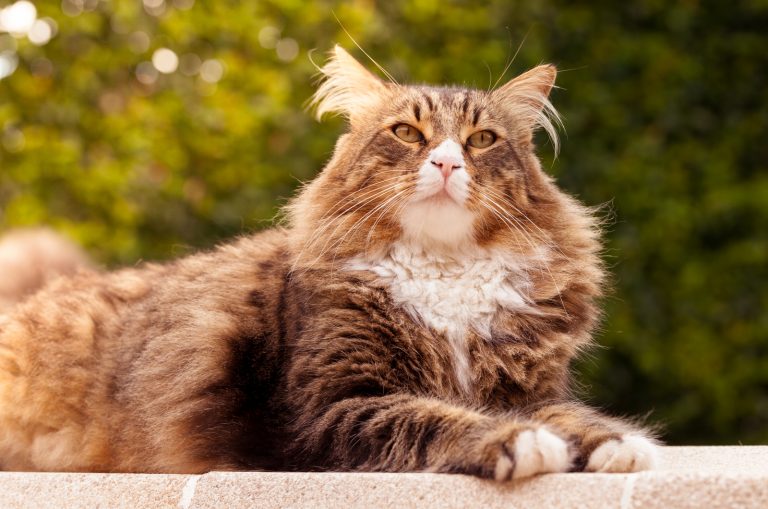Why And When Do Male Cats Start Spraying?
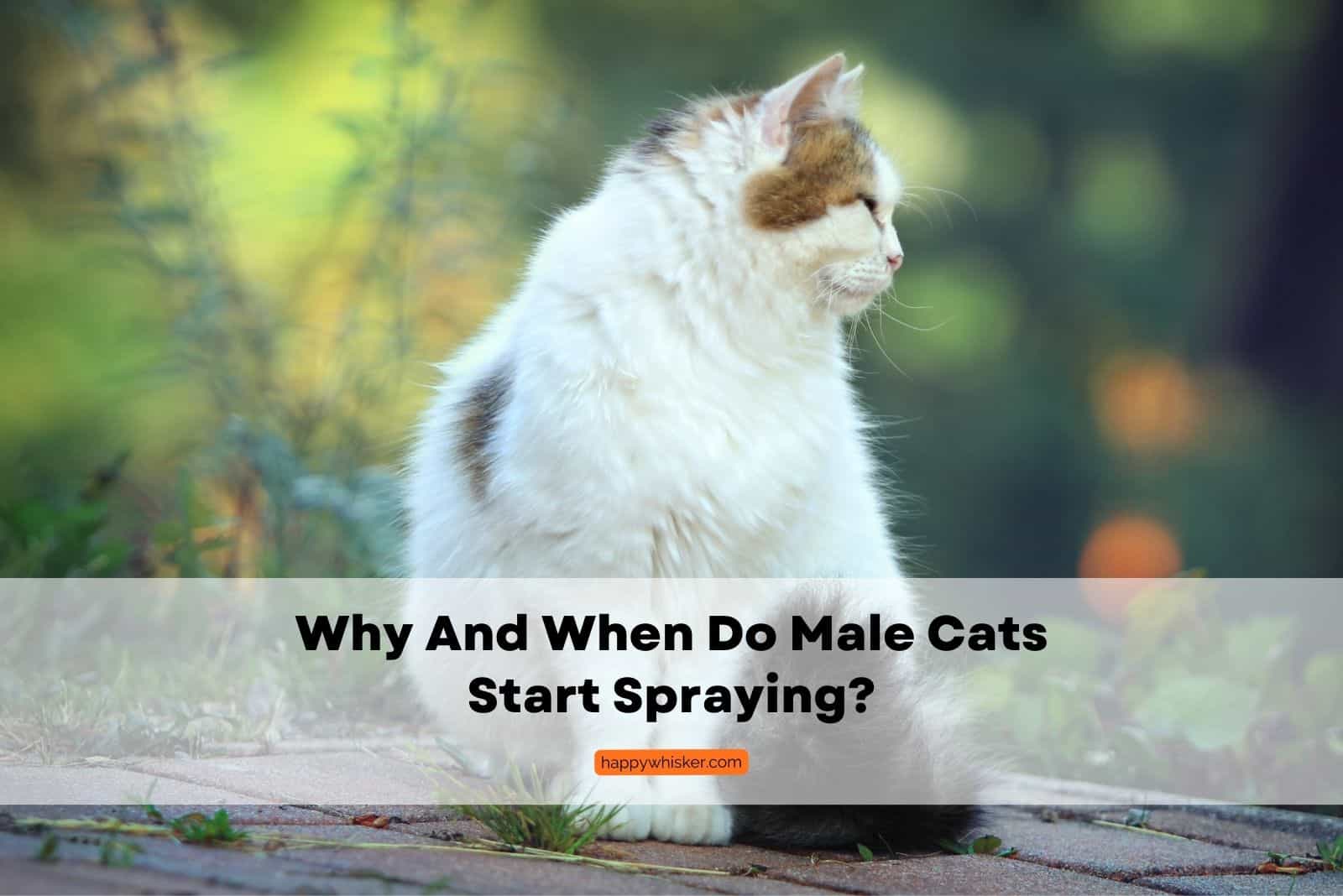
Many cat owners are concerned about spraying. I’ve met with a lot of owners who have heard different stories about it and that’s where their concerns are coming from.
It’s important to know that your male cat starts spraying between 5 and 8 months of age. This applies to female cats as well. As soon as they reach maturity, they can start spraying, which is when neutering/spaying procedures can be carried out as well.
When Do Cats Start Spraying?
Cats, both males and females, start spraying as soon as they reach maturity. This usually happens when cats are about 7 months old, however, male cats can reach maturity as soon as 5 months of age.
Female cats can also get pregnant even sooner than that if given the chance. So pay attention to your cats as soon as they start growing up and (as I like to say to most cat parents) start changing their shape from small, chubby kittens to slim, adult cats.
Reasons Why Cats Spray
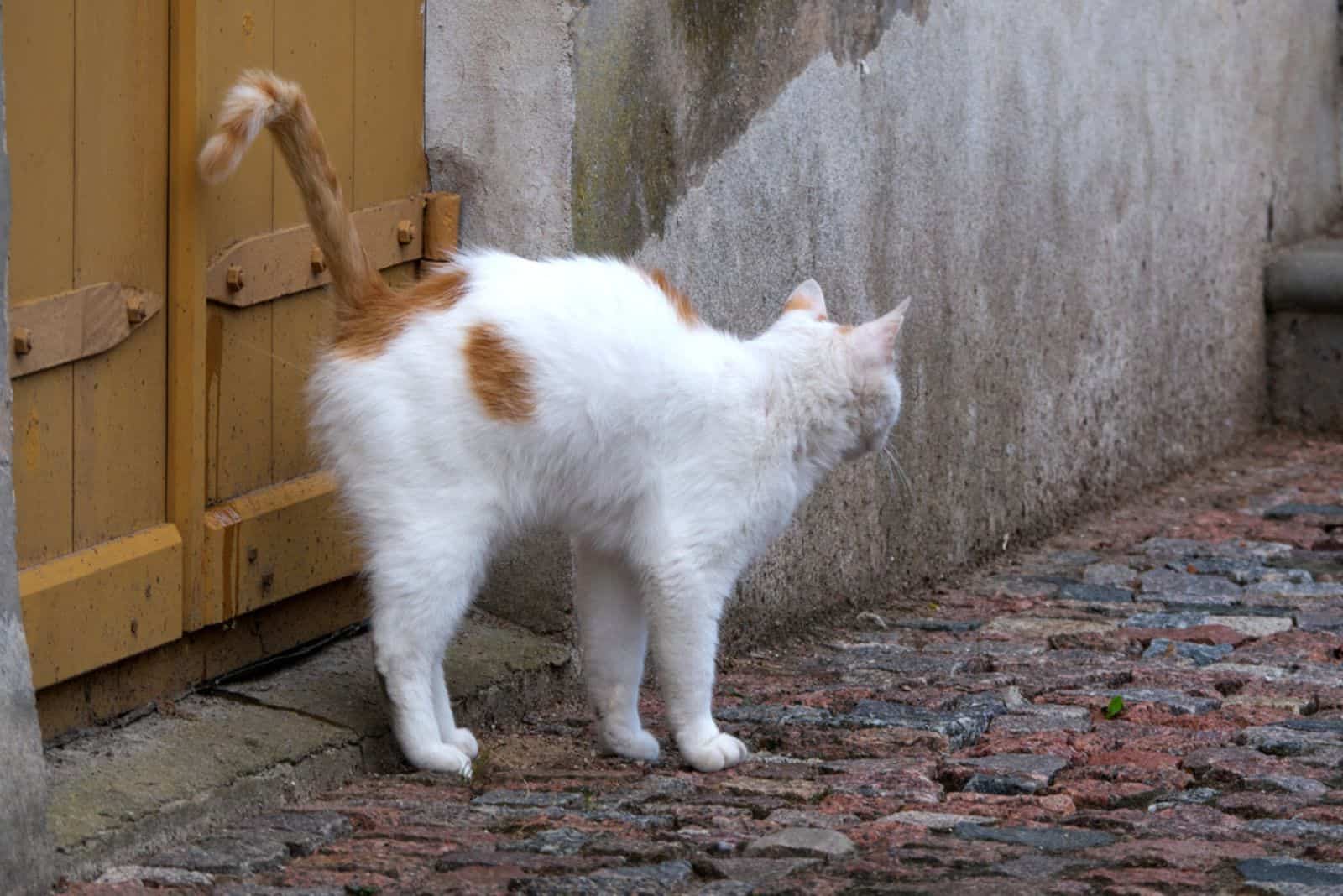
Spraying is completely normal and cats do it to leave their scent. They do it in order to mark a certain spot or to leave a “message” so that other cats know that they are ready to mate. However, spraying is often mistaken by cat owners for peeing.
Actually, cats often do it while at the same time yowling or meowing. All unspayed and unneutered felines do it, and they all do it for two reasons.
# Finding A Mate
Male cats, other than meowing and yowling more than usual, will spray in order to attract a female. The male cat releases pheromones that will attract any female cat that passes by.
If your cat is an indoor-only cat, he will probably only spray and won’t yell (at least not as much as he would if he went outdoors). This is because if you don’t own a female cat, there’s no point in your male yelling around your house.
# Marking The Territory
All cats spray to mark their territory, and we all know cats are pretty territorial. Male cats in the wild, like lions and tigers, do it to protect their area from others.
Similarly, our domestic felines will mark their cat tree, favorite napping spot, and possibly the curtains and certain corners of your home. Every cat will spray around their home so that if any cat comes by, it knows that your home is your cat’s property.
This spraying behavior is also a symbol of dominance. Male cats, especially tomcats, do it more than female cats. Female cats do spray, but they do it far less than male cats. Some female cats might never do it.
What Does It Look Like When A Cat Sprays?
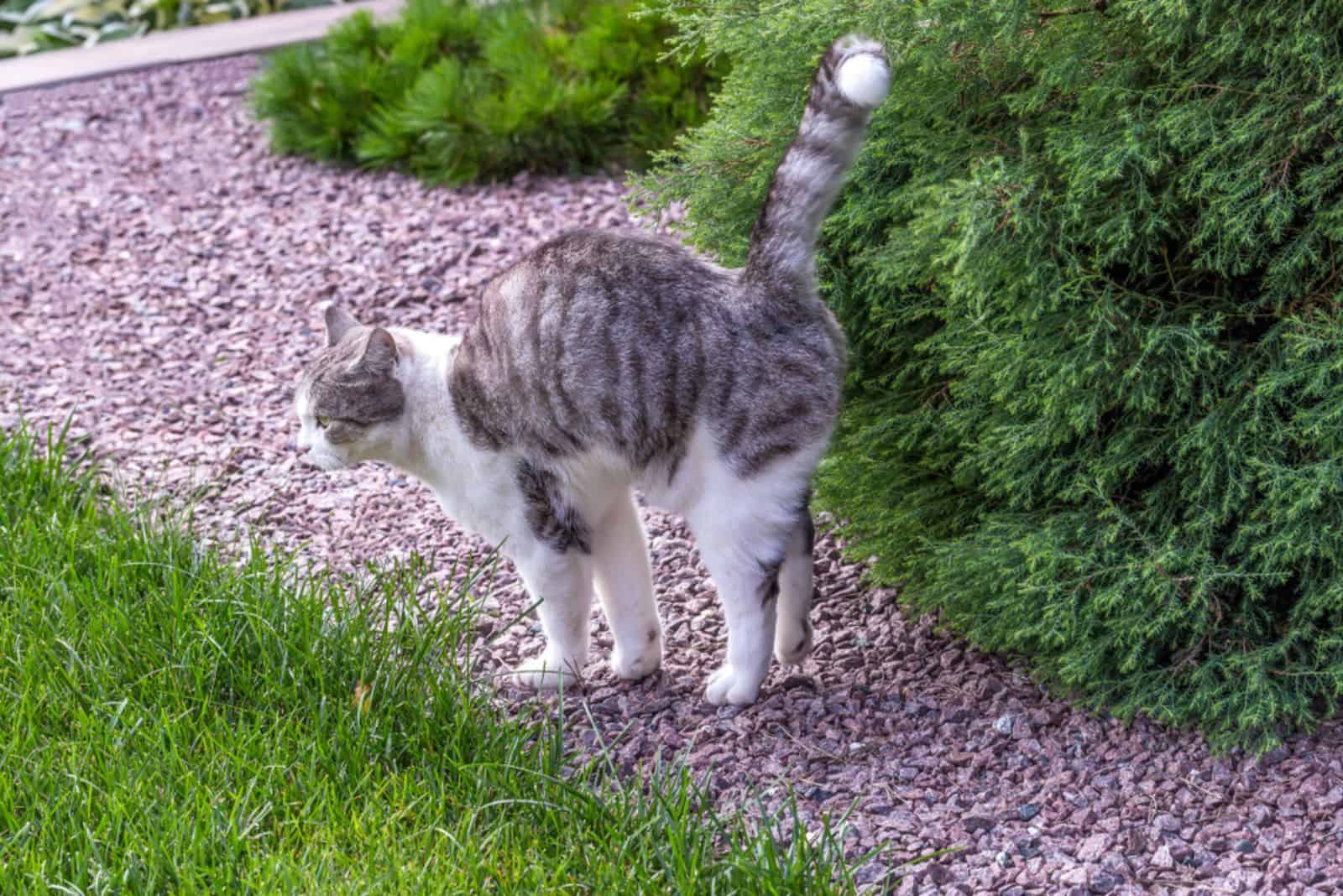
You’ll notice if your cat raised its butt, not in its litter box, and its tail was probably shaking. This can happen in different spots around your house or yard.
Debra F. Horwitz, in Common Feline Problem Behaviors, states that cats mostly do it in areas you spend more time in, in corners of the room, or basically any vertical area.
You might also want to read more about What Does Cat Spray Smell Like?
How To Discern Between Spraying And Urinating
It is important to know the difference between peeing and spraying, but I know it can be confusing at first, especially if you haven’t seen it before. When cats spray, they also release urine, but it is different because your male cat will be standing differently.
That is the main difference; while spraying, as I said earlier, your cat’s butt will be held up and its back will be curved upwards like they’re walking. Some cats even have a strange look in their eyes while they do it.
Another thing that is totally different is the amount that comes out. We all know cats kind of squat when peeing, but also that they pee a somewhat regular amount of pee.
However, when they spray, it’s like they literally spray a mist, just a few drops onto the surface.
What To Do To Stop The Spraying
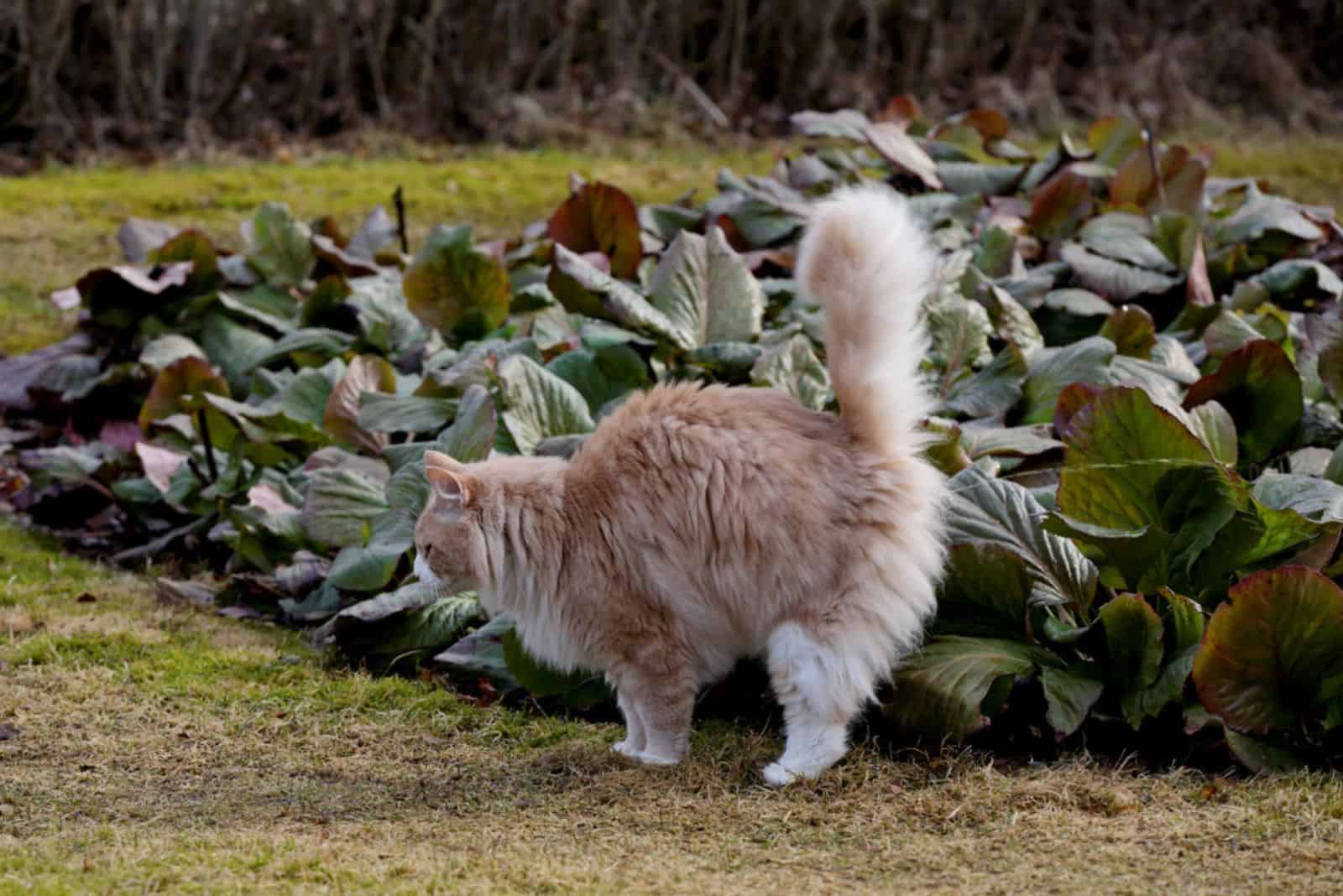
A lot of cat owners come to us in need of help to solve this issue. It is not an issue for your cat, of course, but it is an issue for you and your house. The pee your cat sprays around is filled with pheromones, and it tends to have a strong scent.
Now, here are some things you can try out to help prevent your cat from spraying around.
1. Neuter (Or Spay)
Most cat parents are sure they won’t want their cat to breed in the future, so they opt to neuter/spay it before their cat reaches maturity. You can also do this if you’re planning on keeping your cat as a pet only.
Neutering your male cat helps in 95% of situations, and this is the option most cat owners choose for their cat since it is proven to help.
This is also what many shelters (and owners who let their cats outdoors) do because it helps reduce the number of stray cats.
2. Get Rid Of Anything That’s Causing Stress
Sometimes neutered cats continue to spray, and the cause of this is usually stress. You should look for what’s stressing your cat out, and try to put an end to it. If you are moving the furniture around, or you’re buying new stuff for the house, do it gradually.
If there’s something else that’s causing your cat to stress, work slowly to deal with it. Provide your cat with enough clean water, food, a safe and comfortable place to sleep, and a lot of toys. This can greatly reduce stress.
Also, provide your cat with an enclosed and comfy spot, where it can hide away and take a nap if it wants to.
3. Clean Your House With Pet-Safe Enzyme Cleaners
If you can see where your cat has sprayed, you should clean it with enzyme cleaners. Spray and rub with the cleaner a few times and the spot will be scent-free. If you do a good job, your cat will probably stop spraying at that spot.
4. Give Synthetic Pheromones A Try
Cats use pheromones to leave their scents and messages for other cats. Synthetic pheromones come in handy in these situations since they give off a relaxing vibe.
Your cat is less likely to spray when there’s already a pleasant scent spread around. Synthetic pheromones usually calm cats down, but it doesn’t work for all cats.
5. Avoid Punishment
You should not reward spraying, but scolding your cat isn’t advised either. If you scold and punish your cat, you’ll just stress it out and cause it to spray again. Try using other methods from this list to deal with the spraying in your home.
6. Block Your Cat’s Spraying Spots
Most cats prefer certain specific spots in the house to spray on. If you notice this with your cat, and you’re able to detect which exact spots those are, try to block them. This is effective for a lot of cat owners, and it doesn’t cost anything to try out.
When To Contact Your Vet
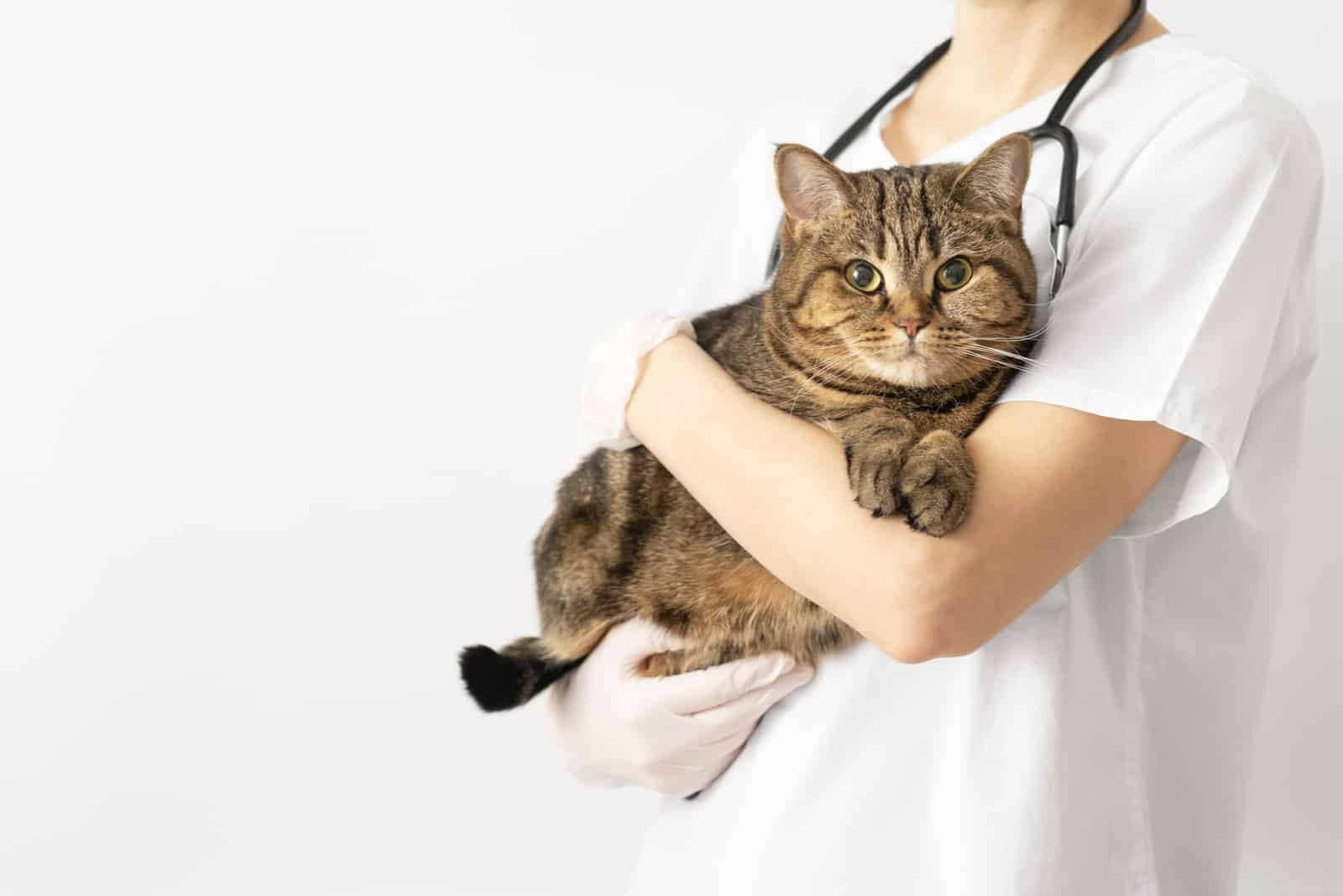
Rarely, but in some cases, male cats might spray for some health reasons. If none of the methods I’ve listed work out for you, consult your vet.
Don’t wait, because if there is an issue with your cat, it’s better to deal with it in the first stages. Take your cat to the vet, especially if you’ve already neutered him and he continued spraying.
Final Words
Most cat parents see spraying as the worst thing about their male cats. However, female cats can do it as well, they’re just less likely to. So, a lot of cat owners, especially new ones, wonder when will their male cats start spraying and how to prevent it.
We have a lot of them come to the clinic because they’ve heard stories and they want to put a stop to it in the beginning.
Your male (or female) cat will start spraying anywhere between 5 and 8 months of age. If you decide to neuter your cat, you can do it as soon as they reach maturity, which is about this age.
Don’t worry if you’re not sure of your cat’s exact age, or you’re unsure if they’ve reached sexual maturity, your vet will know when your cat is ready for the procedure.
Read Next: When Is It Too Late To Neuter A Cat? Read On To Find Out!

